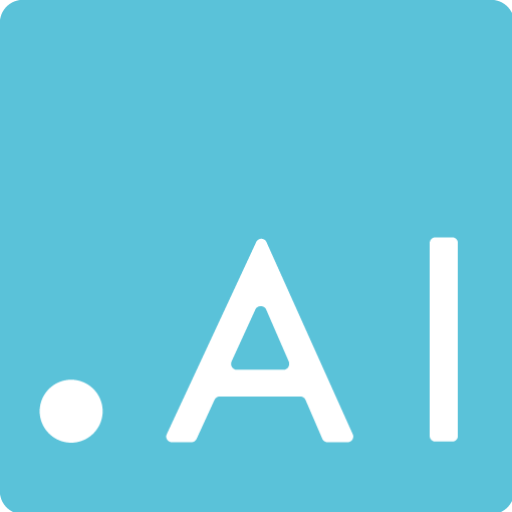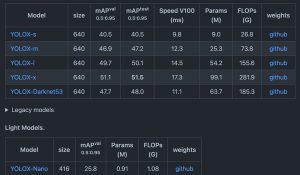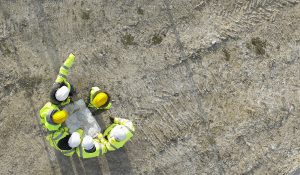Mr. Ogawa’s Encounter with AI and the Founding of 2WINS
Kyakuko: Could you start by telling us about Mr. Ogawa’s background?
Ogawa: I was a baseball-playing kid who went to local schools in Oita Prefecture from elementary through high school. Currently, I’m a first-year master’s student at the University of Tokyo’s Graduate School of Information Science and Technology, researching the field of autonomous driving. At university, I engage in comprehensive research involving both hardware and software, focusing on machines and information (AI).
Kyakuno: Being born in 2001, you grew up when smartphones were already prevalent. What initially sparked your interest in autonomous driving and AI?
Ogawa: Even as a grade school student, I was already fascinated by the topics I study now. Although I didn’t understand the technical terms then, around fourth grade, I vaguely dreamed of becoming an inventor (laughs). I was purely interested in AI, robots, and autonomous cars, which were not as technically advanced back then as they are now. I thought it would be cool if these technologies could be realized. Back then, most people thought such things were impossible, and that inspired me even more—if I could make the impossible possible, wouldn’t that be amazing? That’s still my motivation today and the reason I’ve reached where I am.
Kyakuno: How did “2WINS” come about?
Ogawa: By the time I was in junior high, my definition of an inventor had changed—I realized I was aiming to be something like an “IT entrepreneur.” As I grew older, my desire to start a business in IT became stronger, and I began to explore specifically what and when to pursue after entering university. During my sophomore year, I met an entrepreneurial senior and started to expand my network and communicate with various people along with Ryota Yoshimura, who I now co-represent. After some trial and error toward starting our business, the two of us founded “2WINS.” It’s been about two years since our inception, and our team has grown to about 20 members.
Forming a community in advance to strengthen knowledge and organizational capabilities.
Kyakuno: How did the interaction with Axell begin?
Ogawa: It started when we participated as judges in the “Blockchain Hackathon for Students 2022.” Originally, did you set up the organization to handle both blockchain and AI?
*The student blockchain hackathon hosted by “Hongo Web3 Valley,” a Web3 community run by current University of Tokyo students and managed by 2WINS.
Ogawa: Initially, we focused solely on AI development. All the founding members were involved in AI, so we first established AI as our strength. Of course, we were also interested in blockchain, and just before setting up the organization, NFTs and other blockchain technologies started gaining attention in Japan. A few months after founding the company, we also started a blockchain community. That’s when blockchain started to become a part of 2WINS. We thought that combining blockchain with AI development could expand our capabilities, but we also knew we needed to learn what was possible. That’s why we started with the community to learn various things.
Kyakuno: There are several organizations and startups at the University of Tokyo that conduct similar research. What would you say distinguishes 2WINS in terms of individuality and strengths?
Ogawa: As you said, there are many AI startups within the University of Tokyo, and I’ve felt that especially this past year. Some people focus on development technology, while others have a wealth of business knowledge. Objectively, it seemed that many people start businesses from a business perspective. In our case, our team is technically oriented, and one of our strengths is being able to turn ideas and technologies developed in this environment into business applications.
Kyakuno: Being able to propose solutions to business challenges through AI from a technical perspective is indeed a major strength.
Ogawa: Mr. Kyakuno, having seen the current generation of students interested in AI, do you feel anything in particular?
Kyakuno: First of all, their energy is incredible. I’m always impressed by their curiosity about AI and their eagerness to learn. This applies to the community you’re forming as well, especially their strong desire to learn and try out new areas like blockchain. Also, I found it interesting that you formed the community first before trying to absorb anything else. Is there a reason for that?
Ogawa: I realized that businesses using blockchain at that time often had some sort of community associated with them. If a community was going to be necessary anyway, we thought we might as well create one ourselves from the start. Another reason is to create an “easy-to-learn environment,” as I mentioned earlier. We can gather people at the same time, and if the community is successful, it can also lead to new ideas. At that time, there weren’t many such groups of students, so there was also a hope that we might become a top player.
The reason for narrowing our focus from blockchain to AI development

Kyakuno: So, you’ve returned to focusing on AI; is there a specific reason for this narrowed focus?
Ogawa: First of all, our core has always been AI; that has never changed. While we still consider integrating blockchain as a technology that could support AI, to be honest, we have yet to identify challenges that can only be solved with AI combined with blockchain, and we have not clearly seen a vision for how 2WINS could realistically tackle such challenges.
Kyakuno: Blockchain essentially involves creating platforms, doesn’t it? Unlike AI development, which can proceed in small increments, blockchain revolves around attracting a large number of customers and monetizing through token sales. It feels like a market that requires at least 100,000 customers and is highly polarized as a business. Therefore, I think it’s a difficult market unless an organization has some kind of share it can further activate through blockchain.
Ogawa: Does your company also develop services geared towards blockchain?
Kyakuno: We were considering tools that analyze and support blockchain, but we’ve determined that it’s a market that will take time to become viable as a business, so currently, we are focusing on AI. However, with the advent of smart contracts enabling programmers to handle currency, I believe that eventually, major currencies like Central Bank Digital Currencies (CBDCs) will be programmable, and I feel that this will become the norm someday.
This is an interview with Mr. Ogawa from the University of Tokyo’s AI startup “2WINS,” and Mr. Kyakuno, Executive Director of Axell. In this first part, we discussed Mr. Ogawa’s career path, the founding of the organization, the future as envisioned through AI development, and the reasons for launching a blockchain community. In the next part, we will delve into considerations and future predictions for AI in business.

Photo Right
Ryuto Ogawa
Co-CEO, 2WINS Inc.
Graduate, Department of Mechanical and Information Engineering, Faculty of Engineering, University of Tokyo
First-year Master’s student, Graduate School of Information Science and Technology, University of Tokyo, specializing in Intelligent Mechanical Information
Engaged in research on cooperative autonomous driving in academia. Serves as the representative director of the General Incorporated Association Student Web3 Federation and is the Co-Founder/Current Office Director of Hongo Web3 Valley, the largest blockchain engineer group at the University of Tokyo. He organizes the largest student hackathon and Web3 Summit in Japan, serving as the head responsible for events in collaboration with ministries and corporations. In GCI2023, offered by the Matsuo Lab at the University of Tokyo, he achieved top 1% honors by applying data science in BizDev. With two years of experience as a business consultant for small and medium enterprises through a certified support organization, he actively engages in AI development under the theme “From Research and Development to Social Implementation.” In 2022, he co-founded 2WINS Inc. with Mr. Ryota Yoshimura.
Photo Left
Kazuki Kyakuno
Executive Director and General Manager of Business Development Group, Axell Corporation
CTO, ax Inc., Visiting Associate Professor, University of Tsukuba
Obtained a doctoral degree at the University of Tsukuba Graduate School for research on hardware implementation of various elementary functions. Joined Axell Corporation and engaged in the development of compression algorithms for video and audio aimed at the amusement market. Planned and developed ailia SDK, a proprietary AI framework. Established ax Inc., specializing in AI, and took the position of CTO. Currently focuses on R&D and commercialization in the field of advanced technologies.
Links
2WINS Inc.
https://www.2wins.ai
For inquiries about AI development, products, and services, please contact us here.
https://ailia.ai



